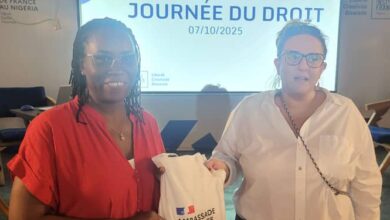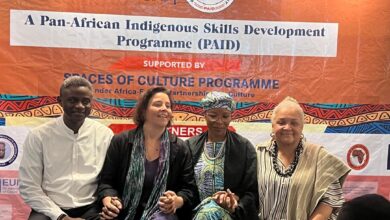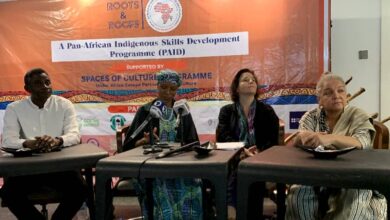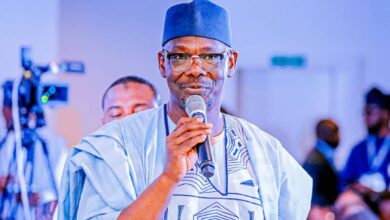EU Cultural Cluster celebrate PAID initiative as Nigeria’s selected project in Pan-African cultural grant
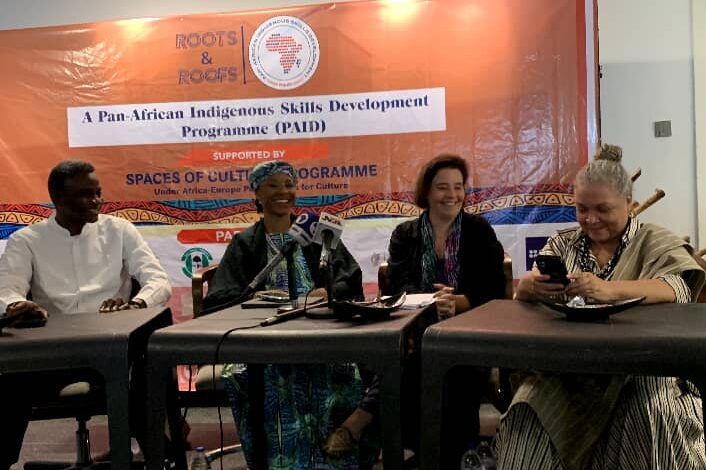
By: Tijani Salako.
The European Union National Institutes for Culture, alongside the Goethe-institute, the Embassy of Ireland and other collaborators with Center for Black and African Arts and Civilisation (CBAAC) have expressed a note of excitement over the selection of the Nigeria’s Pan-African Indigenous Skills Development Programme (PAID) as the only Nigerian project awarded under the EU’s 2025 “Space of Culture” cultural grant.
Speaking at the press conference in Lagos to launch the Pan-African Indigenous Skills Development Programme (PAID), Dr Nadine Siegert, the Director for Goethe-Institute and President of the European Union National Institutes for Culture (EUNIC) Nigeria Cluster, expressed her excitement over the selection of the project as one of only seven initiatives across Africa to receive funding under the EU’s 2025 “Spaces of Culture” programme.
She said “This is really exciting, because PAID is the only project selected from Nigeria other selected projects are from Senegal, Kenya, South Africa, Angola, and few African country. The PAID team will to traveling to South Africa, to present the project to other grant recipient and EUNIC cluster members as the project launching marks the beginning of intensive groundwork by the PAID steering committee, stressing that in about a year, the public would see tangible results from the programme.
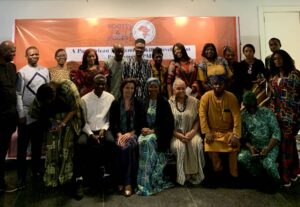
“For the Goethe-Institute, and for me personally, this is more than a cultural programme. Our mission has always been to collaborate with local partners in countries where we are hosted. Nigeria, with its incredible diversity and richness of culture and its warm, open people offers a fertile ground for such partnership,” she noted.
Also, Mrs Aduke Gomez, the representative of Ireland Embassy, further emphasised the value of working with CBAAC, the National Troupe of Nigeria, and the Institute of African and Diaspora Studies, which serve as local partners in the PAID programme noting that more collaborators may be brought on board in the long run.
Mrs Gomez said “this project is a celebration of the wisdom and knowledge embedded in what we refer to as indigenous culture today. But beyond just preserving this knowledge, we are focused on adapting and innovating with the aim to connect this deep knowledge with younger generations, the Gen Z and Gen Alpha who are now fusing culture with digital media, fashion, interior design, and more. Expressing hopes that the project would produce not just documentation but also tangible outputs functional and artistic designs that can be found in homes, galleries, offices, and clothing.
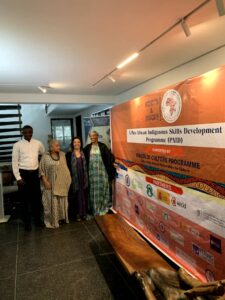
However, Dr Siegert further solidify that “EUNIC is a global network of European cultural organizations working together to build trust and understanding through cultural exchange. In Nigeria, our cluster includes the embassies of Spain, Ireland, and Sweden, as well as cultural institutions like the Goethe-Institute and the French Institute, among others.
While highlighting the collaborative nature of the “Spaces of Culture” programme, she said applicants were required to form partnerships comprising at least three local and three European institutions. “It was beautiful to see how eager everyone was to contribute. The PAID project stands as a shining example of equitable, inclusive, and locally rooted cultural collaboration,” she said
She further described architectural structures as “living archives of wisdom and community values, echoing the programme’s theme focusing on “roots and roofs,” which ties together cultural heritage and indigenous architectural expression as the PAID project is aligned with key global frameworks such as the UN Sustainable Development Goals (SDGs).

